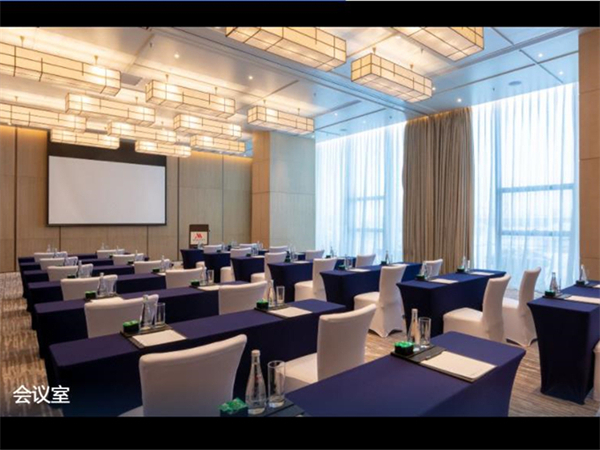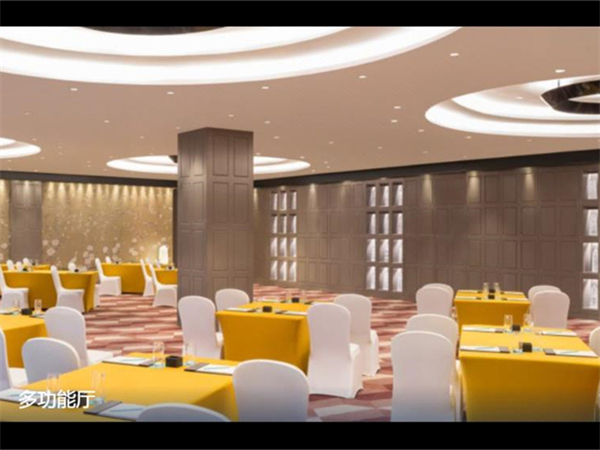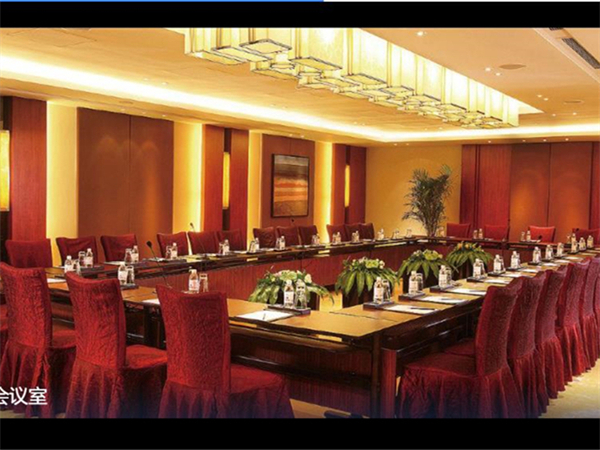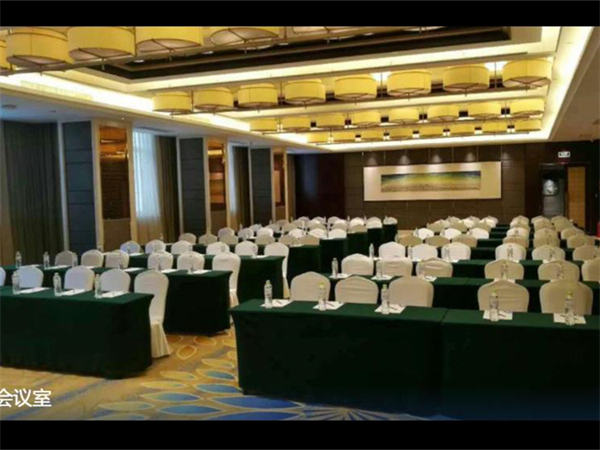
本文目錄
邀請(qǐng)函包括宴會(huì)、舞會(huì)、晚餐、聚會(huì)、婚禮等各種邀請(qǐng)信件,形式上大體分為兩種:一種為正規(guī)的格式(formal correspondence;一種是非正式格式(informal correspondence)。邀請(qǐng)信一定要將邀請(qǐng)的時(shí)間(年、月、日、鐘點(diǎn))、地點(diǎn)、場(chǎng)合寫(xiě)清楚,不能使接信人存在任何疑慮。那么你知道英文邀請(qǐng)函及回復(fù)范文是怎么寫(xiě)的嗎?下面我整理了AA,供你參考。
1.邀請(qǐng)朋友共進(jìn)午餐 Inviting a friend to informal luncheonDear [Zhang Ying]:
Will you come to luncheon on [Friday, May the fifth], at [twelve o’clock]?

My niece [Mary] is visiting us and I think you will enjoy meeting her. She is a charming, very pretty girl… and very good company! [John and Jane] will be here, and perhaps we can [give a dance] after luncheon. Do say you’ll come!
Affectionately yours,
Li Ming
親愛(ài)的[張營(yíng)]:
您能在[5月5日星期五中午12點(diǎn)鐘]來(lái)吃午飯嗎?
我侄女[瑪麗]正在我們家中作客,我想您會(huì)樂(lè)于見(jiàn)到她的。她是個(gè)漂亮而聰明的女孩子,……同她在一起是很使人高興的![約翰和簡(jiǎn)]也到這里來(lái),也許在飯后我們能[開(kāi)個(gè)舞會(huì)],說(shuō)好,一定得來(lái)呀!

Dear [Susan]:
I know you are interested in [oil painting], so I’m sure you’ll be interested in [Mr. and Mrs. Lin dun]! They are coming here
to supper [next Sunday night, October the twelfth], and we’d like you and [Walter] to come, too.
[Mr. and Mrs. Lin Dun] are that very charming couple we met in [London] last summer. They have a wonderful collection of [oil paintings of various stages]; and I understand that Mr. Lin Dun is quite an authority on [oil painting]. I’m sure you and Walter will thoroughly enjoy and evening in their company.
We’re planning supper at six; that will give us a nice long evening to talk. If I don’t hear from you before then, I’ll be expecting you on the [twelfth]!
Affectionately yours,
Li Ming

親愛(ài)的[蘇珊]:
我知道您對(duì)[油畫(huà)]是有興趣的,所以我相信您對(duì)林頓夫婦也會(huì)感興趣。他們將在[10月12日(下星期日)]來(lái)吃飯,我們很希望您和瓦爾特也能同來(lái)。
[林頓夫婦]是那么好的一對(duì)夫妻。我們是去年夏天在[倫敦]認(rèn)識(shí)的。他們集有[各個(gè)不同時(shí)期精美的油畫(huà)作品]。我知道,林頓先生在研究[油畫(huà)]方面是頗有權(quán)威的。我深信,那天晚
上您和瓦爾特同他們?cè)谝黄穑欢〞?huì)很愉快。
我們準(zhǔn)備在6點(diǎn)鐘吃晚飯,這樣就能有較長(zhǎng)的時(shí)間閑談。如果事前接不到您的回信,我就指望你們那天到來(lái)。
3.邀請(qǐng)來(lái)家中小住及周末聚會(huì) An invitation for a house and weekend partyDear [Jane]:
I hope [you and Fred] haven’t any plan for the weekend of [July twenty-fourth] as we’d like you to spend it with us at [Far Acres]. It’s simply beautiful here now, with everything in bloom!
I think we can promise [Fred] some good fishing this year. The fish are biting better than ever! So bring your fishing clothes; and be s

ure to bring your tennis things, too, because [the Owens] are coming and I’m sure you’ll want to get out on the courts with them.
There’s a very good train [Friday night]; I’ve marked it in red on the timetable. It gets you here about [seven-thirty] which is just in time for dinner. You can get a late train back
[Sunday night], or there’s an early express that [Bob] usually takes on [Monday morning]. We hope nothing will prevent you from coming, as we’re looking forward to your visit… and I know [the Owens] are looking forward to seeing you again, too. Be sure to let us know what train you are taking so that [Bob] can meet you at the station.
Affectionately yours,
親愛(ài)的[簡(jiǎn)]:
如果您[7月24日]沒(méi)有什么活動(dòng)安排,我希望[您和弗雷德]能同我們一起在[遠(yuǎn)莊園]共度周末,那里已經(jīng)鮮花遍地,現(xiàn)正在最美麗的時(shí)節(jié)。

我想,今年我們能讓[弗雷德]釣魚(yú)釣得更快活。魚(yú)兒比過(guò)去任何時(shí)候都愛(ài)上釣魚(yú)。請(qǐng)把釣魚(yú)的服裝帶來(lái),也別忘記帶上打網(wǎng)球的用具,因?yàn)槲覀冞€邀約了[歐文]夫婦,我想,你們是樂(lè)意同他們打網(wǎng)球的。
[星期五晚上]有一班舒適的火車,我已經(jīng)在火車時(shí)刻表上做了紅色記號(hào),火車大約在[7點(diǎn)半鐘]把你們送到這里,正是吃晚飯時(shí)間。[星期日晚上]你們可以乘晚車回來(lái)。或者,在[星期一早晨]也有一班快車,就是[鮑勃]常坐的那一班車。
我們希望沒(méi)有什么事情會(huì)阻礙你們,我們?cè)诘却銈児馀R……我知道[歐文夫婦]好盼望再次見(jiàn)到你們。準(zhǔn)備乘哪一班火車,請(qǐng)一定告訴我們,好讓[鮑勃]到車站迎接你們。
4.邀請(qǐng)參加招待會(huì) An invitation for a receptionDear [Mr. Smith]:
It would give [me/us
] great pleasure to have your presence at a reception in honor of the Chinese delegation.
The reception will be held in the [the City Hall], on [Tuesday, October the fourth]. Cocktails will be served promptly at [six] to be followed b dinner at [eight].
[I/We] sincerely hope you can attend. Let [me/us] know.
Sincerely yours
親愛(ài)的[史密斯先生]:
如您能夠出席為[中國(guó)代表團(tuán)]而舉行的招待會(huì),[我(們)]將感到十分榮幸。
招待會(huì)定于[10月4日(星期二)]在[市政廳]舉行。[6點(diǎn)鐘]準(zhǔn)時(shí)舉行[雞犬不寧尾酒會(huì)],隨
之在[8點(diǎn)鐘]舉行[正式的晚宴]。
[我(們)]期待著您的光臨。請(qǐng)?zhí)崆巴ㄖ芊癯鱿?/p> 5.邀請(qǐng)演講 Inviting someone to address a meeting
Dear [Dr. Rodger]:
[The English Department of Nankai University] would like to extend to you an invitation to be our guest speaker at the [annual conference] to be held at the [meeting room] at [eight] o’clock, [Saturday morning, December the thirtieth, 1993].
As you know, the department is interested in [the 20th century English literature] Since you are familiar with the field, we know your views will be extremely interesting to us.
You will receive further details later, but we would appreciate having your acceptance soon so we may complete our agenda.
Cordially,
親愛(ài)的[羅杰博士]:
[南開(kāi)大學(xué)外文系]特邀請(qǐng)您出席[1993年12月30日(星期六)早八點(diǎn)在(系會(huì)議室)]召開(kāi)的[學(xué)術(shù)年會(huì)]并作演講。
正如您所了解的,[南大外文系]對(duì)[20世紀(jì)的英國(guó)文學(xué)頗感興趣]。您對(duì)此領(lǐng)域很熟悉,您的見(jiàn)解定會(huì)給我們帶來(lái)很大的興趣。
我們將隨后把有關(guān)細(xì)節(jié)通知您,但懇請(qǐng)您盡快予以答復(fù),以便作出安排。
6.邀請(qǐng)參加新廠開(kāi)工典禮 Invitation to opening ceremony of new factoryDear [Mr. Harrison]:
Our new factory will be commencing production on [April 10] and we should like to invite [you and your wife] to be present at a celebration to mark the occasion.
As you will appreciate this is an important milestone for this organization, and is the result of continued demand for our products, both at home and overseas. We are inviting all those individuals and trust that you will pay us the compliments of accepting.
Please confirm that you will be able to attend by advising us of your time—— we can arrange for you to be met. All arrangements for your stay [overnight on April 10] will, of course, be made by us at our expense.
Yours faithfully,
親愛(ài)的[哈里森先生]:
本公司新廠將于[4月10日]開(kāi)始投產(chǎn),希望能邀請(qǐng)[賢伉儷]來(lái)參加新廠開(kāi)工典禮。如您所知,新廠的設(shè)立是本公司的一個(gè)里程碑,而這正是海內(nèi)外對(duì)本公司產(chǎn)品不斷需求的結(jié)果。我們邀請(qǐng)了所有對(duì)本公司的成功貢獻(xiàn)一切力量的個(gè)人,我們相信,您一定會(huì)賞光。
如您確能參加,請(qǐng)來(lái)函告知您抵達(dá)的時(shí)間——以便我們?yōu)槟才艜?huì)晤。當(dāng)然,所有安排您在[10日晚間]夜宿的費(fèi)用,皆將由公司代您支付。
邀請(qǐng)信的回復(fù)邀請(qǐng)信的復(fù)信要求簡(jiǎn)明扼要,在書(shū)寫(xiě)時(shí)應(yīng)注意以下幾點(diǎn):
1.接受邀請(qǐng)的復(fù)信中應(yīng)重復(fù)寫(xiě)上邀請(qǐng)信中的某些內(nèi)容,如邀請(qǐng)年、月、日,星期幾、幾點(diǎn)鐘等,如“I’ll be delighted to attend your luncheon next Friday, May the fifth, at twelve o’clock”。
2.邀請(qǐng)信的復(fù)信中應(yīng)明確表明接受邀請(qǐng)還是不接受邀請(qǐng),不能含乎其
詞,如不能寫(xiě)“I’ll come if I’m in town”。這類的話,以使得對(duì)方無(wú)法作出安排。在接受邀請(qǐng)的復(fù)信中,應(yīng)對(duì)受到邀請(qǐng)表示高興。謝卻的復(fù)信中應(yīng)闡明不能應(yīng)邀的原由。
1.對(duì)遲復(fù)邀請(qǐng)表示歉意 Apologizing for being unable to give an early reply
Dear [Mr. Jackson]:
Please accept my apologies for the delay in acknowledging your invitation for [lunch/ diner/ cocktails] on [September the fourth, this year]. I have been away from the office and only just returned.
Luckily, I have no other plans for the date you mention, and shall be happy to see you at [6] at the Black Swan Restaurant.
Cordially,
親愛(ài)的[杰克遜先生]:
未能對(duì)您發(fā)來(lái)的出席今年[9月4日]舉行的[午宴/晚宴/雞尾酒會(huì)]的邀請(qǐng)給予及時(shí)答復(fù)深表歉意。我因近期一直在外,剛剛返回。
幸運(yùn)的是,我在那天沒(méi)有其他安排,很愿意屆時(shí)在[黑天鵝餐廳]與您會(huì)面。
2.對(duì)不能參加而遲復(fù)邀請(qǐng)回信表示歉意 Apologizing for being unable to accept the invitation and give an early reply
Dear [Mr. Hovell]:
Please accept my apologies for the delay in acknowledging your invitation for [lunch/ dinner/ cocktails] on [September the fourth, this year]. I have been away form the office and only just returned.
Unfortunately, I have other plans for the date you mention, but shall be happy to make a date for some other convenient time.
Cordially,
親愛(ài)的[霍維爾先生]:
未能對(duì)您發(fā)來(lái)的出席[今年9月4日]舉行的[午宴/晚宴/雞尾酒會(huì)]的邀請(qǐng)予以及時(shí)答復(fù)深表歉意。我因一直外出,剛剛返回。
很遺憾,由于有其他事務(wù)安排,故不能赴約。我很愿意在以后方便的時(shí)候前去拜會(huì)。
3.接受與不相識(shí)的人共進(jìn)午餐 Accepting an invitation to luncheon with strangers
Dear [Wang Hua]:
I’ll be delighted to come to your luncheon on [Tuesday, April the sixth], at [on] o’clock.
[Bob] has often spoken me of [Wang Hui], and has told me how very much he enjoys having him for a [roommate/teammate]. Although I have never met [Wang Hui], I know him from hearing so much about him.
I assure you it will be a very great pleasure indeed to meet [Wang Hui’s mother]! Thank you so much for asking me.
Truly Yours
親愛(ài)的[王華]:
我將愉快地參加您于[4月6日(星期二)下午1時(shí)]舉行的午宴。
[鮑勃]經(jīng)常向我提起[王暉],并經(jīng)常談到與他[同住一室/為隊(duì)友]是多么愉快。雖然我還沒(méi)有見(jiàn)過(guò)他,但因?yàn)槁?tīng)到有關(guān)他的事情多,好像已經(jīng)認(rèn)識(shí)他了。
我相信,同[王暉的媽媽]相會(huì)一定會(huì)使人非常愉快,非常感謝您的邀請(qǐng)。
4.謝絕不相識(shí)的人的邀請(qǐng) Apologizing for being unable to accept an invitation
Dear [Mrs. Brown]:
I have heard so much about [Lambert] from [Jane] that I almost feel as though I knew him. I would certainly enjoy meeting his mother!
But unfortunately I expect guests myself on [Friday, the seventh of May]; and therefore cannot accept your invitation for luncheon on that day.
It was thoughtful of you to invite me, and I am extremely sorry I cannot accept, I do hope you will ask me again some time!
Sincerely yours,
親愛(ài)的[布朗]:
我已經(jīng)從[簡(jiǎn)]那里知道了許多關(guān)于[蘭伯特]的事,我好像已經(jīng)認(rèn)識(shí)他似的,能夠去見(jiàn)他母親我當(dāng)然覺(jué)得十分榮幸!
但是很不湊巧:在[5月7日(星期五)]我自己要招待客人,因此就不能接受您在那天的午宴邀請(qǐng)了。
承您如此熱情地相約,恰巧因事不能前往,深表歉意,但愿以后能再次榮獲您的邀請(qǐng)。
例文如下~希望能幫到你~謝謝!
Mr. and Mrs. John Smith request the honour of the presence of
Mr. and Mrs. J. A. Brown
at the marriage of their daughter
Elizabeth Smith
to
Mr. John Frederick Hamilton
Saturday, the twenty-ninth of September
at four o'clock p.m.
Church of Heavenly Rest
New York
譯文如下:J.A.布朗先生及夫人:茲定于九月二十九日(星期六)下午四時(shí)在紐約天安教堂為小女伊麗莎白.史密斯與約翰?弗雷德里克.漢密爾頓先生舉行婚禮,屆時(shí)恭請(qǐng)光臨。約翰.史密斯夫婦謹(jǐn)訂。這是一張正式的英文結(jié)婚請(qǐng)柬,格式采用固定的分行式。在內(nèi)容安排上按照“邀請(qǐng)者被邀請(qǐng)者邀請(qǐng)之意活動(dòng)內(nèi)容時(shí)間地點(diǎn)”這樣的先后順序。漢語(yǔ)的順序是“活動(dòng)時(shí)間活動(dòng)地點(diǎn)活動(dòng)內(nèi)容邀請(qǐng)之意邀請(qǐng)者的姓名”,邀請(qǐng)者的姓名應(yīng)寫(xiě)在右下角,與正文分開(kāi)。無(wú)論是英語(yǔ)請(qǐng)柬還是漢語(yǔ)請(qǐng)柬,在語(yǔ)言上的要求是一致的,都須簡(jiǎn)潔明了,措辭莊重、文雅,比如,原請(qǐng)柬中為表達(dá)邀請(qǐng)之意所用的是“request the honour of the presence of”,翻譯時(shí)用“恭請(qǐng)光臨”與之對(duì)應(yīng)。此外,譯文的開(kāi)頭用了“茲定于”,結(jié)尾處用“謹(jǐn)訂”,這樣的用詞都體現(xiàn)了請(qǐng)柬正式的文體。但有兩點(diǎn)不同:第一,英文請(qǐng)柬從頭至尾都采用第三人稱,譯成中文時(shí),一般應(yīng)改用第一人稱,如:“the marriage of their daughter”譯成“為小女”;第二,英文請(qǐng)柬中星期應(yīng)寫(xiě)在日期之前,譯成漢語(yǔ)時(shí),星期應(yīng)寫(xiě)在日期后面的括號(hào)內(nèi)。
1、英文會(huì)議邀請(qǐng)函首先可以寫(xiě)會(huì)議的有關(guān)信息,包括項(xiàng)目名稱、會(huì)議時(shí)間以及會(huì)議地點(diǎn)等;2、其次可以寫(xiě)出席會(huì)議的領(lǐng)導(dǎo);3、接著可以寫(xiě)會(huì)議議程以及會(huì)議主要內(nèi)容;4、較后結(jié)尾部分可以寫(xiě)期待各位準(zhǔn)時(shí)參加。
Dear Li Hua,
I had a birthday party at my home last month.I invited some of my classmates to the party. The party began at 8a.m.on Sunday. All my classmates were not be late. I was very happy. We ate some western food.They were very nice.Some of my classmates brought their own food. They shared their food with us. Because they are very friendly. We also played games. It was very interesting. All my classmates were very happy. I danced with my best friends. And all my classmates danced very beautifully! They sang a song’Happy Birthday’ to me. And then they ge me a lot of presents. I was very thankful. All of us had a good time on that day!
Do you he free time I want to visit you ne_t year
Dear Joy
I want to play a party to celebrate___.
I'd like to invite you to my party.
The time is __.
Thank you!
Dear ___:
I want to play a party to celebrate___.
I‘d like to invite you to my party。
The time is ___.
Thank you!
在會(huì)議中以正確的方式想法
1) Be well prepared before the meeting. Get to know what the meeting objective is, who will attend the meeting, what the meeting's general outline is, what kind of problem needs to be solved in the meeting and what you need to do. Only when you he prepared all this information in advance, can you then he a clear mind and e_press your ideas clearly.
做到有備而來(lái),知道會(huì)議的目的是什么,有誰(shuí)參加會(huì)議,會(huì)議大致內(nèi)容是什么,會(huì)議要解決什么問(wèn)題,以及需要你做什么工作等等。只有將這些會(huì)議信息提前掌握好,才能幫助你把思路捋順,有針對(duì)地表達(dá)自己。
EG. Cathy is the new staff member of a foreign company. Every time before the monthly departmental meeting, she usually reads the meeting agenda carefully and does research about discussing problems. Due to her efforts, she can offer constructive comments in the brainstorming session. Cathy soon passed the probation periodand was seen as a high potential employee.
某外企新入職員工Cathy每月會(huì)慣例參加部門(mén)會(huì)議,在開(kāi)會(huì)之前,她總是仔細(xì)閱讀會(huì)議流程,針對(duì)要討論的部份進(jìn)行調(diào)查研究,每次頭腦風(fēng)暴環(huán)節(jié)都能主動(dòng)提出建設(shè)的意見(jiàn)。很快Cathy順利通過(guò)試用期,并被視作是高潛力員工。
2) Outline the main points when delivering a speech in the meeting. You should first state your opinions and then give reasons. Make a list of what you want to say according to logic and use several words or a short sentence to summarize every single point. If you he enough time, use data or facts to demonstrate related items.
會(huì)議發(fā)言做到提綱挈領(lǐng)。先講主張?jiān)僬f(shuō)理由,按照一定的邏輯把自己想說(shuō)的列成表格,每條每點(diǎn)都能用幾個(gè)詞或者一句話概括總結(jié)。如果時(shí)間充裕,可以在相關(guān)的條目下用數(shù)據(jù)或事實(shí)論證。
Eg. As an event coordinator, in a meeting discussing new product’s news conference, Jason stated his points as following:“Firstly, we should focus on the new product’s uniqueness and price strength using the majority of time; Secondly, it is necessary to give a short review of last generation of products. It definitely will help to show the product’s improvement and upgrades based on the old one. In the last section, we should not only lee enough time for media to ask questions, but also give the attendees time to e_perience the new product.”
EG.活動(dòng)策劃員Jason在討論新產(chǎn)品新聞發(fā)布會(huì)活動(dòng)方案時(shí)陳述了自己的意見(jiàn):“一,新產(chǎn)品介紹:發(fā)布會(huì)大部分時(shí)間應(yīng)集中在新產(chǎn)品功能的獨(dú)特以及價(jià)格優(yōu)勢(shì)的介紹上;第二,上一代產(chǎn)品回顧:有必要對(duì)上一代產(chǎn)品進(jìn)行簡(jiǎn)單回顧,可以展示出新產(chǎn)品在此基礎(chǔ)上的改進(jìn)和提升;較后一個(gè)環(huán)節(jié)除了需要留出足夠的時(shí)間與互動(dòng),還要預(yù)留時(shí)間給參會(huì)人體驗(yàn)新產(chǎn)品。
3) Listen carefully to other's opinions and take records when you think it’s important, especially in discussions. Then based on what you heard, adjust your thinking and find an appropriate time to make a statement. Make sure your language is simple, well organized and logical.
會(huì)議中尤其是討論的環(huán)節(jié)認(rèn)真聽(tīng)取他人意見(jiàn),遇到重點(diǎn)部分記錄下來(lái),并針對(duì)此適當(dāng)調(diào)整理清自己的思路,尋找合適的發(fā)言機(jī)會(huì),盡量確保語(yǔ)言簡(jiǎn)單明了、條理清晰且富有邏輯。
EG. As a Human Resources Supervisor, when attending the company’s new regulation consultation meeting, Ivy listened carefully to other ideas, took records and said:“I agree with Sam’s comments. One thing that I would like to add is about the rewards system. The new regulations should try to offer our staff substantive rewards and promotion opportunities. It definitely will stimulate their work abilities.”
Ivy作為人力資源主管,她在參加公司新規(guī)章制度意見(jiàn)征求會(huì)中認(rèn)真聆聽(tīng),做下筆記并發(fā)言:“正如剛才Sam談到的那樣,我還想補(bǔ)充一點(diǎn)的是關(guān)于獎(jiǎng)勵(lì)機(jī)制方面,希望能盡可能給員工提供實(shí)質(zhì)的獎(jiǎng)賞以及晉升機(jī)會(huì),以此更好地激發(fā)他們的工作能力。”
【溫馨提示】關(guān)于會(huì)議邀請(qǐng)函英文,會(huì)議邀請(qǐng)函英文翻譯的介紹,部分內(nèi)容來(lái)自網(wǎng)絡(luò),僅供參考,請(qǐng)以實(shí)時(shí)信息為準(zhǔn)或撥打服務(wù)熱線詳詢。青島會(huì)議公司提供:青島會(huì)議設(shè)備,青島會(huì)議接送,青島會(huì)議住宿,青島會(huì)議場(chǎng)地,青島會(huì)議模特,青島會(huì)議公司策劃,青島會(huì)議接待服務(wù)等。
本文標(biāo)題:會(huì)議邀請(qǐng)函英文,會(huì)議邀請(qǐng)函英文翻譯